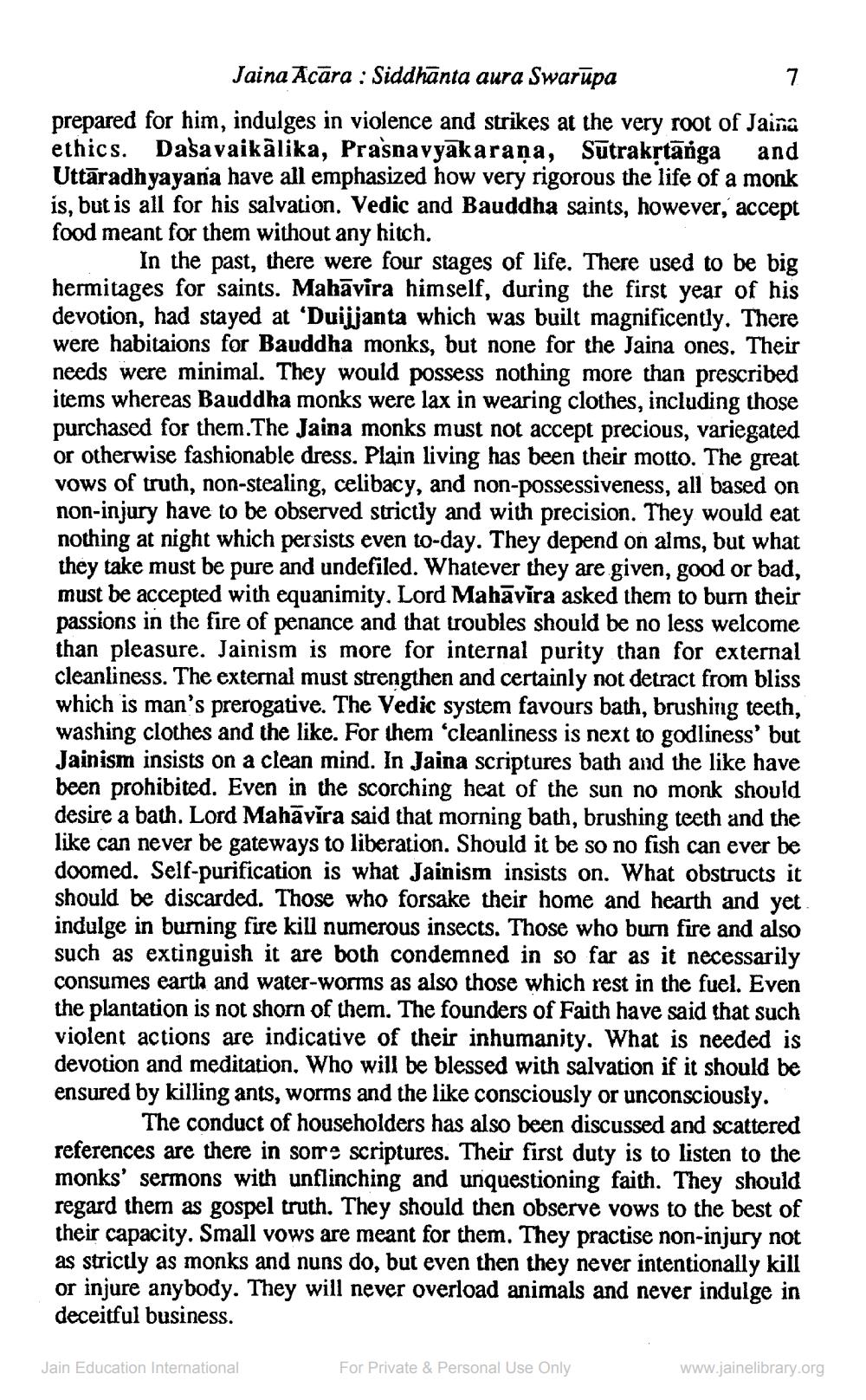________________
Jaina Acāra : Siddhanta aura Swarūpa prepared for him, indulges in violence and strikes at the very root of Jaina ethics. Dasavaikälika, Prasnavyakarana, Sutrakrtänga and Uttāradhyayana have all emphasized how very rigorous the life of a monk is, but is all for his salvation. Vedic and Bauddha saints, however, accept food meant for them without any hitch.
In the past, there were four stages of life. There used to be big hermitages for saints. Mahāvira himself, during the first year of his devotion, had stayed at ‘Duijjanta which was built magnificently. There were habitaions for Bauddha monks, but none for the Jaina ones. Their needs were minimal. They would possess nothing more than prescribed items whereas Bauddha monks were lax in wearing clothes, including those purchased for them. The Jaina monks must not accept precious, variegated or otherwise fashionable dress. Plain living has been their motto. The great vows of truth, non-stealing, celibacy, and non-possessiveness, all based on non-injury have to be observed strictly and with precision. They would eat nothing at night which persists even to-day. They depend on alms, but what they take must be pure and undefiled. Whatever they are given, good or bad, must be accepted with equanimity, Lord Mahāvīra asked them to burn their passions in the fire of penance and that troubles should be no less welcome than pleasure. Jainism is more for internal purity than for external cleanliness. The external must strengthen and certainly not detract from bliss which is man's prerogative. The Vedic system favours bath, brushing teeth, washing clothes and the like. For them 'cleanliness is next to godliness' but Jainism insists on a clean mind. In Jaina scriptures bath and the like have been prohibited. Even in the scorching heat of the sun no monk should desire a bath. Lord Mahāvīra said that morning bath, brushing teeth and the like can never be gateways to liberation. Should it be so no fish can ever be doomed. Self-purification is what Jainism insists on. What obstructs it should be discarded. Those who forsake their home and hearth and yet indulge in burning fire kill numerous insects. Those who burn fire and also such as extinguish it are both condemned in so far as it necessarily consumes earth and water-worms as also those which rest in the fuel. Even the plantation is not shorn of them. The founders of Faith have said that such violent actions are indicative of their inhumanity. What is needed is devotion and meditation. Who will be blessed with salvation if it should be ensured by killing ants, worms and the like consciously or unconsciously.
The conduct of householders has also been discussed and scattered references are there in some scriptures. Their first duty is to listen to the monks' sermons with unflinching and unquestioning faith. They should regard them as gospel truth. They should then observe vows to the best of their capacity. Small vows are meant for them. They practise non-injury not as strictly as monks and nuns do, but even then they never intentionally kill or injure anybody. They will never overload animals and never indulge in deceitful business.
Jain Education International
For Private & Personal Use Only
www.jainelibrary.org




